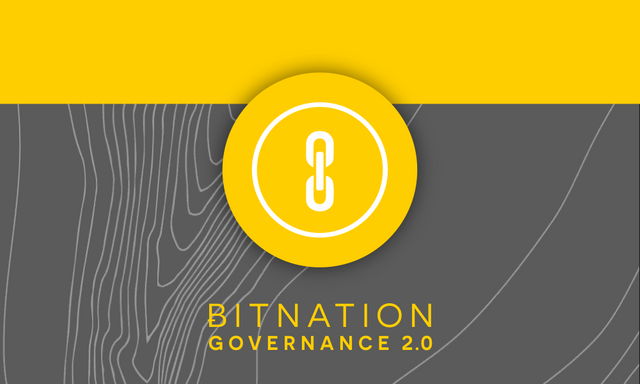
In the course of the recent articles, I introduced Bitnation, explained how its Pangea platform works with a few case study examples, discussed how the Panthalassa framework functions , and then we learnt the mechanisms behind the reputation system on Pangea. In this article we will discuss the Pangea Arbitration Token (PAT).
First a quick recap.
Bitnation is the world’s first Decentralized Borderless Voluntary Nation (DBVN).
Pangea is a Decentralized Voluntarily Joined Jurisdiction software where Citizens(users) can conduct peer-to-peer arbitration and create Nations.
In the last article we learnt that the Pangea Oracle algorithm and the data extrapolating bot Lucy record user activity and decide how much reputation points a citizen earns per task and ultimately Pangea Arbitration Tokens.
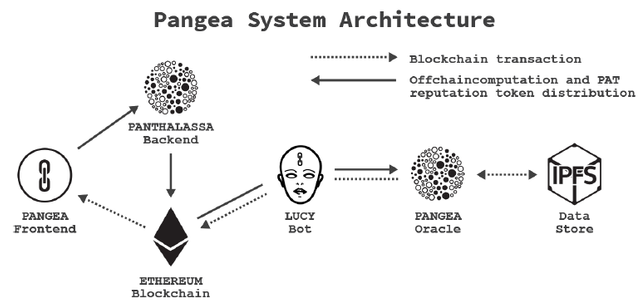
When Citizens create contracts, successfully complete a contract or act as arbitrators and resolve a conflict, they earn non-tradable reputation tokens. These tokens make them eligible for receiving PAT tokens which serve as an incentive. Recall that reputation points cannot be bought or traded but must be earned. This gives the system transparency and promotes honest behavior.

PANGEA ARBITRATION TOKEN
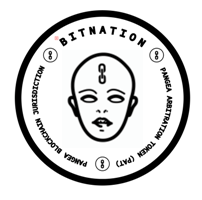
)
The Pangea Arbitration Token (PAT) is an ERC20 compatible in-app token for the Pangea Jurisdiction. It can only be used inside the Pangea world (software). PAT is used to incentivize valuable activity on the Pangea Jurisdiction. This is especially means the creation and successful execution of contracts, as well as resolving disputes. Each contract has its own specific ID number and each contract has a particular rating that will be used to determine the amount of reward the executor will receive.
The Pangea Arbitration Token (PAT) is based on an Ethereum smart contract and can be traded. Keep in mind that PAT was not created primarily as a currency but rather as an incentive. According to the Bitnation whitepaper, PAT governs three non-tradable reputation tokens, each with specific functions and attributes:
● Proof-of-Agreement (POA): A non-tradable reputation token for Pangea users and arbitrators which is governed by performance criteria for smart contract creation and execution;
● Proof-of-Collective (POC): A non-tradable reputation token for DBVNs, user groups and governance services created on Pangea, it is governed by user satisfaction with collective contract creation and execution;
● Proof-of-Nomic (PON): A non-tradable reputation token for contracts, laws and legal codes governed by user satisfaction.
Source

PROOF OF AGREEMENT
The POA non-tradable tokens build an individual user’s reputation on Pangea. 34% of generated PAT master tokens are released on Pangea as rewards for Citizens who build up POA reputation. PAT can be used to power operations like paying for governance services on Pangea. 34% of created PAT master tokens will be sold to external stakeholders through a two-stage Token Sale Event to generate funds for the construction of Pangea and to empower the community. The remaining 32% of PAT master tokens are reserved for rewarding Bitnation founders, contributors, advisors and early Pangea adopters.
TOKENOMICS
Let's look at an overview of the Pangea Arbitration Token economy.
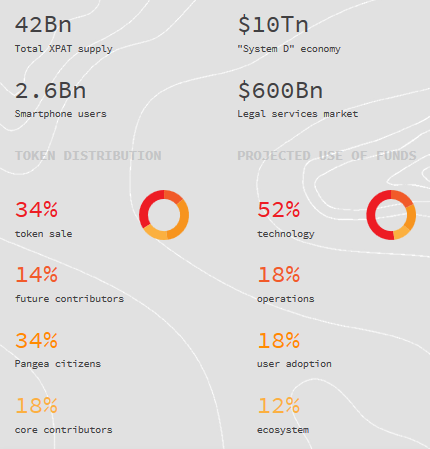

PROOF OF COLLECTIVE
This token shows the contrast of COLLECTIVE versus INDIVIDUAL PAT
One of the core features of Pangea is the freedom it gives citizens to create or join a nation. Citizens can easily create their own DBVN by choosing and applying one or several codes of law, a dispute resolution mechanism and a decision-making mechanism. Citizens can also add governance services as DApps. Whitepaper Pg 27
The most fun part of all this is that it is all done on the mobile app. Pretty nifty!
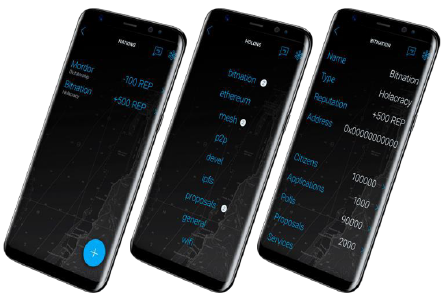
DBVNs rely on smart contracts to govern interactions within the community. These could be Bitnation templates or custom smart contracts. To create a DBVN the citizen must do the following;
- Choose a legal code that the community (nation) will abide by.
- The citizen will also choose Economic Model (e.g. Capitalism, Socialism, Communism, etc.),
- The citizen will select the Decision Making Model (e.g. Democracy, Holacracy, Futurarchy, etc),
- The citizen will choose the Jurisdiction (e.g. Pangea or an external Nation State jurisdiction);
- The citizen will then define what the the governance services will be (e.g. Security, Education, Healthcare, Infrastructure, Sports etc).
In Pangea, DBVNs can nest into other DBVNs allowing organic scaling. Think of a nation inside a continent. A DBVN scales through people forming Holons, a self-organized system. Examples of this type of social organization in the real world are the Bitcoin community, Linux community, and Anonymous.
This group reputation is governed with strict parameters and will be measured by the human members of the group based on whether the governing entity (the DBVN, Port, Embassy etc.) fulfills its goals and visions as described in its DBVN Constitution. That DBVN, group or service then receives the POC non-tradable reputation token. Citizens can even rate interactions with groups they are not members of. This, however, will require the use of third-party software.
In the next article, we shall look at the final form of reputation token - Proof-of- Nomic (PON) which covers the rating of contracts, laws and legal codes.

If you would like to be a part of this wonderful project or need more information about them feel free to drop a comment and I'll do my best to answer your questions. You can also check them out yourself by following any of the links below.
Bitnation Website - https://tse.bitnation.co/
BitNation Blog https://blog.bitnation.co/
Bitnation Constitution - https://github.com/Bit-Nation/BITNATION-Constitution

Bitnation Social Media
Bitnation Telegram | Bitnation Facebook | Bitnation Steemit

DISCLAIMER: The information contained within this post shall not be taken as financial advice. I am not a financial advisor and none of your investing should be carried out based on any information presented here. You can lose all of your money by not investing wisely. The above information is for educational and awareness purposes only. Kindly Endeavor to DO YOUR OWN RESEARCH
Congratulations @ulqu3! You have completed the following achievement on the Steem blockchain and have been rewarded with new badge(s) :
Click here to view your Board of Honor
If you no longer want to receive notifications, reply to this comment with the word
STOPDo not miss the last post from @steemitboard:
Downvoting a post can decrease pending rewards and make it less visible. Common reasons:
Submit
Congratulations @ulqu3! You have completed the following achievement on the Steem blockchain and have been rewarded with new badge(s) :
Click here to view your Board of Honor
If you no longer want to receive notifications, reply to this comment with the word
STOPTo support your work, I also upvoted your post!
Do not miss the last post from @steemitboard:
Downvoting a post can decrease pending rewards and make it less visible. Common reasons:
Submit